For second consecutive year, epic Spelling Bee produces co-champions
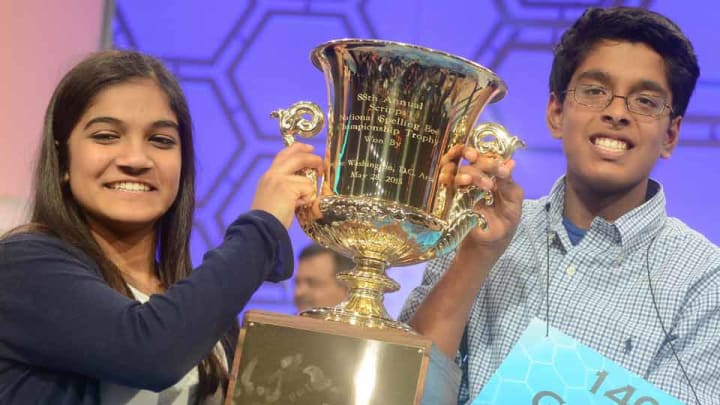
NATIONAL HARBOR, Md.—For nine of the last 10 years, Mirle and Sandhya Shivashankar of Olathe, Kan., have spent several stress-filled days in this Washington, D.C., suburb watching their two daughters, at different times, compete in the Scripps National Spelling Bee. For relaxation, that ranks right up there with taking the kids on a vacation to a tick farm during a monsoon.
“It is a lot of pressure,” says Kavya, the oldest daughter, the 2009 National Spelling Bee champion and now a junior neuroscience major at Columbia, “but I guess by now we’re kind of used to it.”
Kind of. The Shivashankars spent much of Thursday with an ESPN camera practically implanted in their foreheads as they watched the family’s youngest, 13-year-old Vanya, compete for the fifth time. And as befitting a member of the First Family of Spelling, Vanya did not disappoint, engaging Gokul Venkatachalam, a 14-year-old eighth grader from Chesterfield, Mo., in an epic battle that produced, for the second consecutive year, co-champions.
Spelling in the spotlight: Life at the 88th Scripps National Spelling Bee
Vanya is also in eighth grade, the maximum level at which spellers can compete, which means that the Bee will no longer be sitting Shivashankar. They leave with distinction, having produced the first sibling champions. And everyone will long remember the I-see-your-myrmotherine-and-raise-you-one-pipsissewa showdown she staged with Gokul. Let’s call it a Michael Jordan-LeBron James one-on-one battle, if only because Vanya draws inspiration from Jordan quotes while Gokul wore a LeBron jersey under his shirt and offered a “I’m taking my talents to the national spelling bee” exclamation during his personal video segment.
The co-champs offered a delightful study in contrasts. Vanya doesn’t ask what a word’s language of origin is as much as she announces what it is, thank you very much. She attacks the word etymologically, befitting her strategy of working with her father on word roots and patterns. Gokul, for his part, seems to have memorized every word in George Merriam’s and Noah Webster’s universe, spilling out the letters relatively quickly, his manner suggesting that he’d much rather be watching LeBron than competing in a spelling bee.
As Thursday night’s final reached the two-hour mark, pronouncer Jacques Bailly announced that a successful spelling by Gokul in Round 20 would result in a tie. If the audience in the Gaylord Convention Center was hoping to see the young man sweat, stammer, look to the heavens and drag out the drama, well, they had the wrong Venkatachalam. Gokul rattled off nunatak without even asking Bailee to define it. (It’s an Inuit term for a “rocky geographic element.” But you already knew that.)
With the completion of nunatak, Gokul and Vanya—whose last word was scherenschnitte, (a German word referring to the art of paper-cutting design)—the finalists had run the table on the Bee’s special championship list. Bailly and Bee executive director Paige Kimball (the respective 1980 and 1981 champions, by the way), are coy when asked how the championship word list is compiled. “That’s something we like to keep a little secret,” said Kimble.
But it can be defined thusly: It consists of words that are much more ridiculous than the already ridiculous words on the regular list. In Thursday’s final they included commissurotomy, scacchite, cypseline, gnathostome, nixtamal, and urgrund, and why should I tell you the definitions to deprive you the pleasure of looking them up yourself?
The spelling mastery of Gokul and the Shivashankar sisters illustrates two salient points about the Bee—it is quite often a family affair and it is unquestionably dominated by kids of Indian descent. Seven of this year’s 10 finalists had Indian surnames, and kids of that heritage have now won the last eight Bees. Last year’s co-champions were named Sriram Hathwar and Ausun Sujoe.
Which has made life tougher for Paul Loeffler, the ESPN Bee co-host who finished among the top 13 in the 1990 Bee. He writes out the Indian names phonetically on his notes and double-checks pronunciations with families. “I told my producer,” says Loeffler, “that doing the Bee is harder than doing a Hawaii football game.”
The Indian-American domination has resulted in a social media mini-firestorm, not because it’s a significant societal issue but because Twitter trolls need something to troll about. Their comments have run the gamut from the nasty to the predictably banal: #weneedmoreamericansinthebee!It pains Bee officials to talk about the Indian question. Comments must be parsed and scrubbed clean of any kind of racist hint. Kimble, the Bee’s executive director, said the right thing: “We look forward to the time when they’re just Americans, not Indian-Americans.”
Still, the Indian domination is impossible to ignore and provides an interesting sidelight to the competition since that demographic represents only 1% of the American population. So, cutting to the chase …
“There is most definitely not an Indian-American spelling gene,” says the older Shivashankar sister. (You can believe her because she’ll soon be a neuroscientist.) “Becoming a good speller has nothing to do with race or gender or anything like that,” continued Kavya. No argument on gender—finalists and champions in recent years are close to a 50-50 split, and there were six boys and four girls in the finals field this year. Rather, Kavya points to the popularity of spelling in the Indian-American community, probably dating back to Nupur Lala’s victory in 1999, which was chronicled in the influential 2002 documentary, “Spellbound.”
“Spelling has become a passion in the Indian-American community,” says Kavya. “Now, is passion innate? I don’t know. But that is the closest to something being ‘biological.’”
Passion begets perseverance. It’s not like Indian-Americans hit it out of the park on their first at-bat. This was Vanya’s fifth trip to the Bee, and Gokul was the third-place finisher last year. Kavya won it on her fourth try. Hathwar became the 2014 co-champ on his sixth trip to the Bee, and 2008 champion Sameer Mishra won on his fourth. As Gokul could remind you, LeBron didn’t win a championship until his ninth season.
If Indian-American domination has become a trend, so has tougher words. “Each year it’s gotten progressively harder,” said Kavya, who allowed that she would not have reached the 2015 championship round because “each year you’re away from it you lose something.” As the words have gotten tougher, so have the competitors. More preparation. Better study materials. More communication among spellers via social media. The kids are so good that the Bee had to come up with more ways to eliminate the competitors, which is partly why it added a vocabulary section that is administered offstage but figures in the determination of which spellers advance.
Ergo, the announcement of the 10 finalists on Thursday afternoon—carried live on ESPN2—represented the cruelest kind of beauty-pageant-like pressure. Twenty-one semifinalists sat onstage, but only 10 were announced as finalists. Understand that the 11 who missed the finals did not misspell a word; they just had lower scores on the vocabulary.
“I’m not a big fan of that system,” says Kavya. “It makes the kids onstage root against each other.”
But the feeling at the end of the second consecutive Bee in which there were co-champions seemed to be one of genuine harmony. Vanya and Gokul gave each other an awkward hug, and they were surrounded and back-slapped by many of the other competitors, including crowd fave Dev Jaiswal, who embraced just about everybody and announced, “I’ve blown my own mind” after making the finals but missing on irieocyclitis (an inflammation of the iris).
The Bee always has to answer questions about the practicality of a competition that tests words that will never be in common usage, words that even these kids with so much sprachgefuhl (“intuitive sense of what is linguistically appropriate”; Gokul nailed it in Round 15) will probably never use again. The partial answer is that the competition doesn’t claim to be practical. It’s entertainment, a fraught tournament of dazzling parlor tricks.
Bailly knows this and adds: “True, there is no Nobel Prize for spelling. But it’s a gateway skill. It opens doorways to things that people haven’t seen.” And know this: If most of us had to stand onstage, stare into the faces of not just an ESPN camera but also our family and friends, and come up with a proper spelling, we’d be up the creek without a thamakau. That’s a Fiji watercraft. Vanya nailed it in Round 12.
The hardest names to spell in sports
Hardest Names to Spell in Sports
Tshimanga (Tim) Biakabatuka
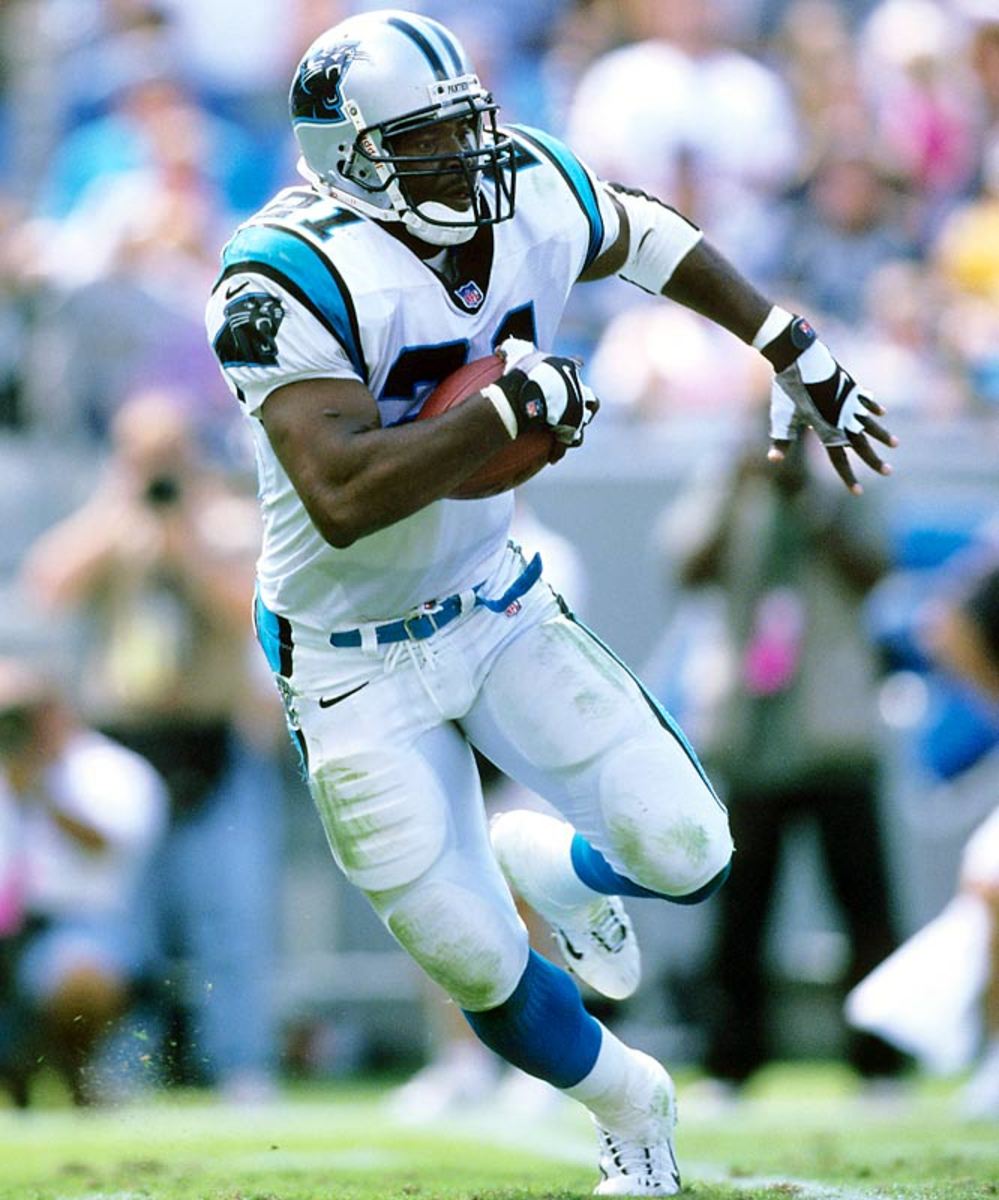
With the 80th Scripps National Spelling Bee concluding this week, SI.com compiled some of the toughest names of athletes to spell, beginning with former Panther running back Biakabatuka. <br><br>Pronunciation: Bee-ak-ah-bah-TOO-kah. <br><br>Used in a sentence: Biakabutuka rushed for 1,818 yards for Michigan in 1995, a single-season school record. <br><br>Click the link on the last frame to let us know which name or names you would add to the list.
Boubacar Aw
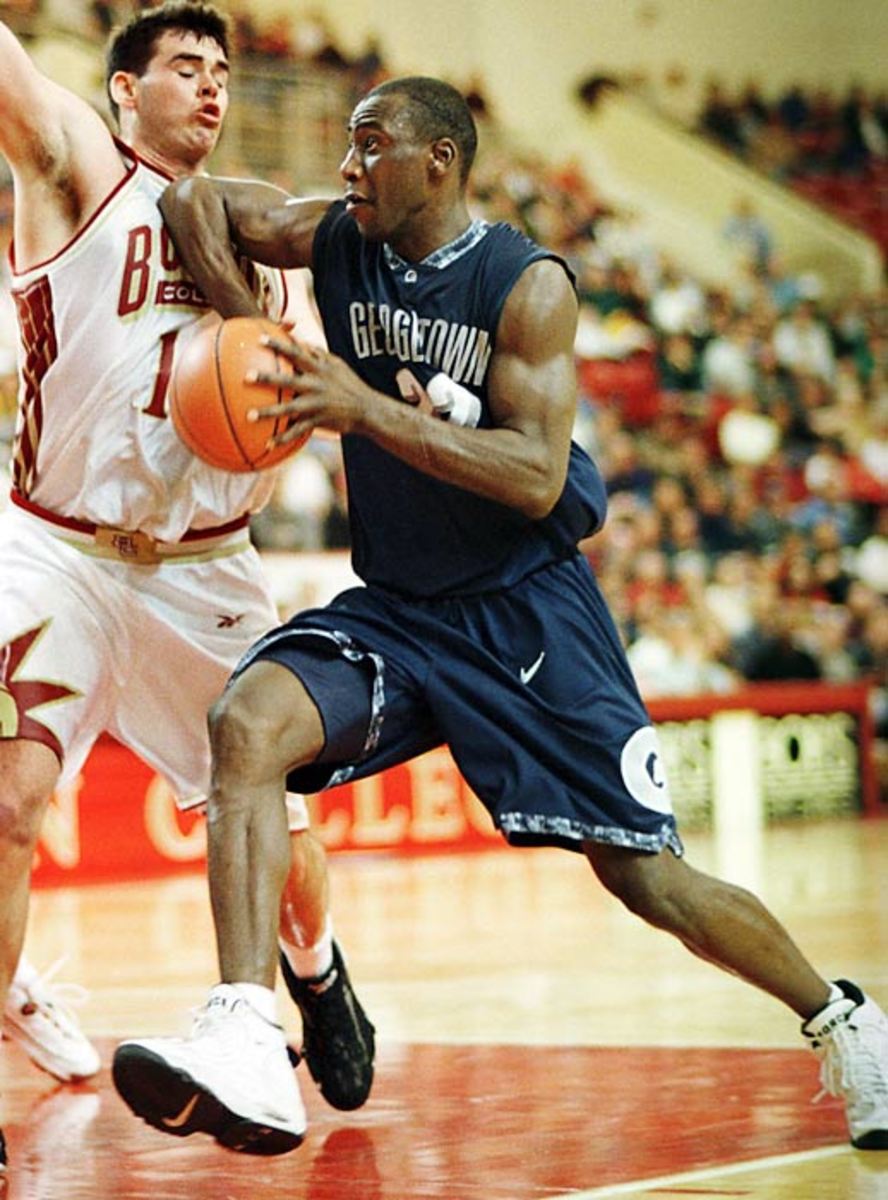
Pronunciation: boo-bah-KAHR<br><br>Used in a sentence: Boubacar played basketball for John Thompson Sr. at Georgetown.<br><br>Click the link on the last frame to let us know which name or names you would add to the list.
Ruben Boumtje-Boumtje
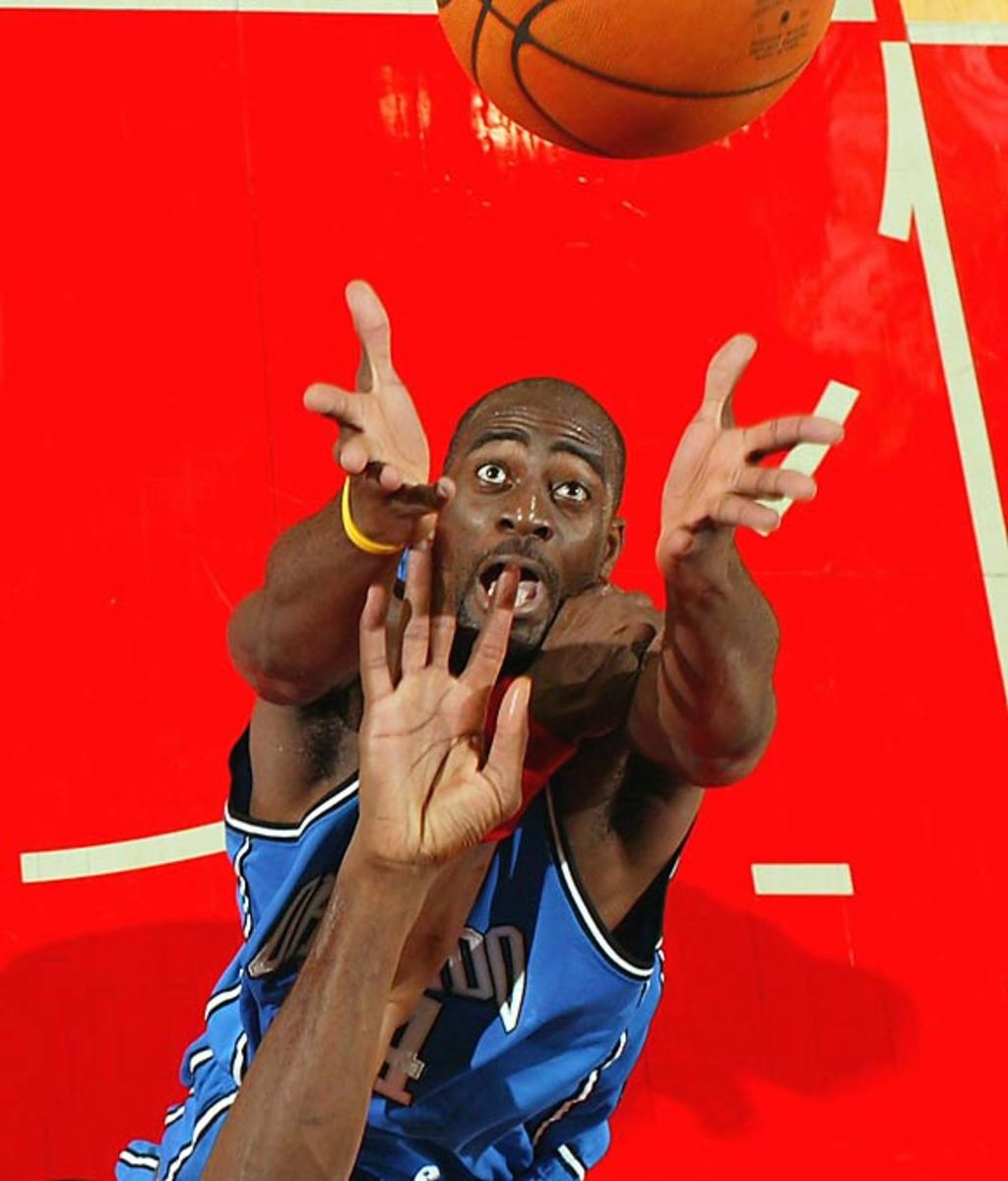
Pronunciation: Boom-shay Boom-shay<br><br>Used in a sentence: Boumtje-Boumtje, a seven-foot center out of Georgetown, was a disappointment with the Portland Trail Blazers.<br><br>Click the link on the last frame to let us know which name or names you would add to the list.
Mark Buehrle
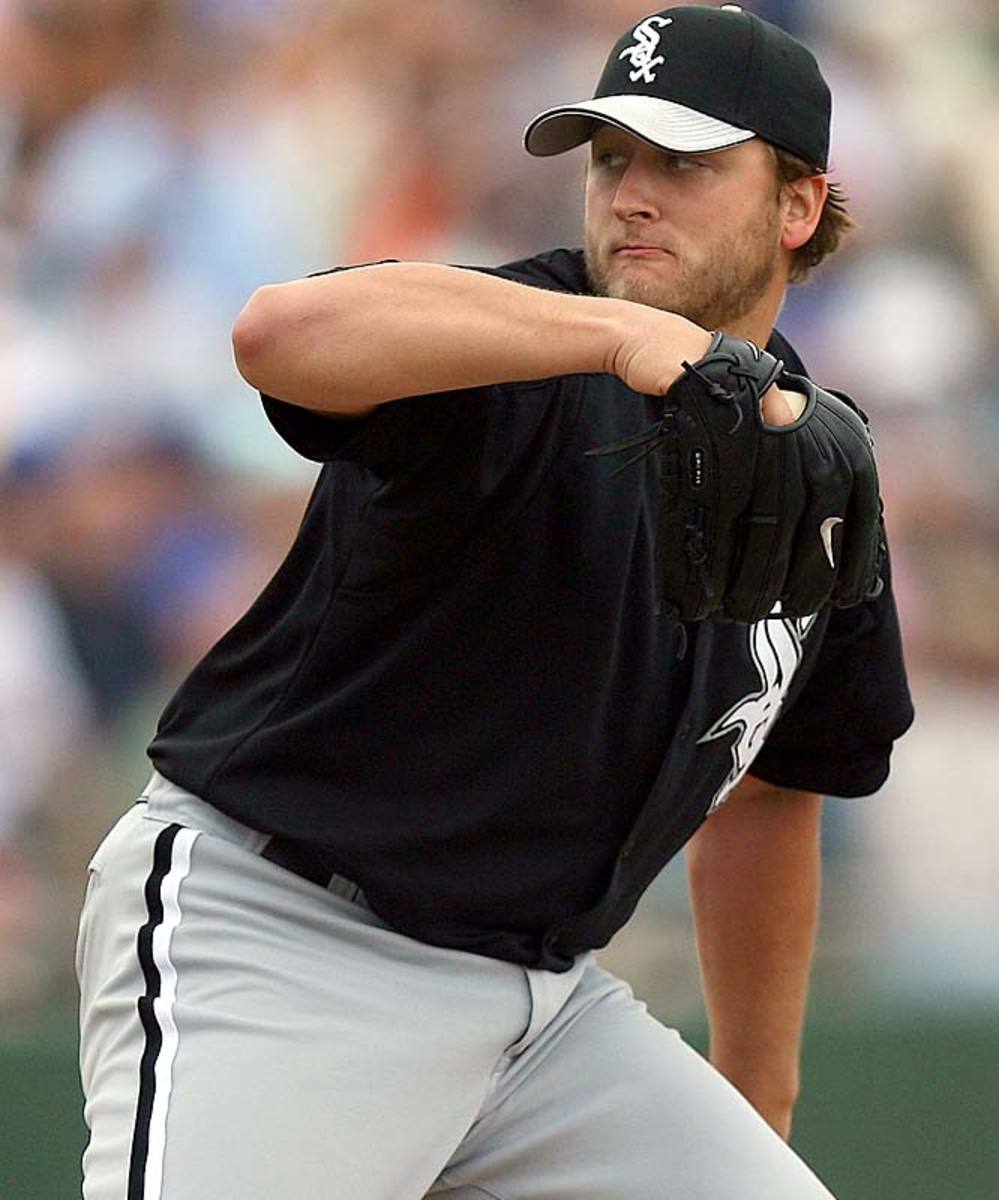
Pronunciation: BUR-LEE.<br><br>Used in a sentence: Buehrle threw a no-hitter against the Texas Rangers on April 18.<br><br>Click the link on the last frame to let us know which name or names you would add to the list.
Kabeer Gbaja-Biamila
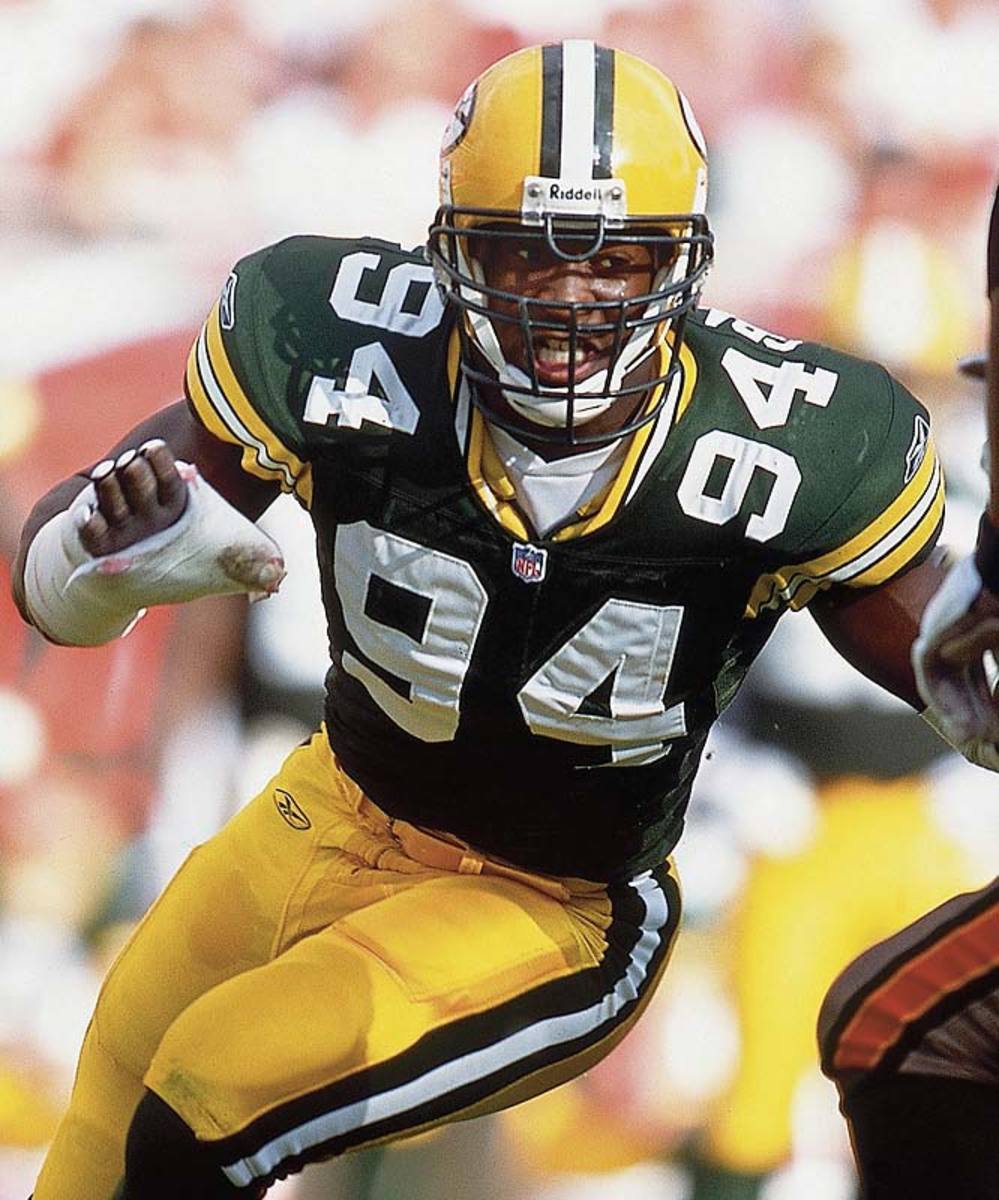
Pronunciation: kah-BEER BAH-jah BEE-ah-MIL-lah<br><br>Used in a sentence: Biamila's name translates to "Big Man Come" in Nigerian. <br><br>Click the link on the last frame to let us know which name or names you would add to the list.
Mark Grudzielanek
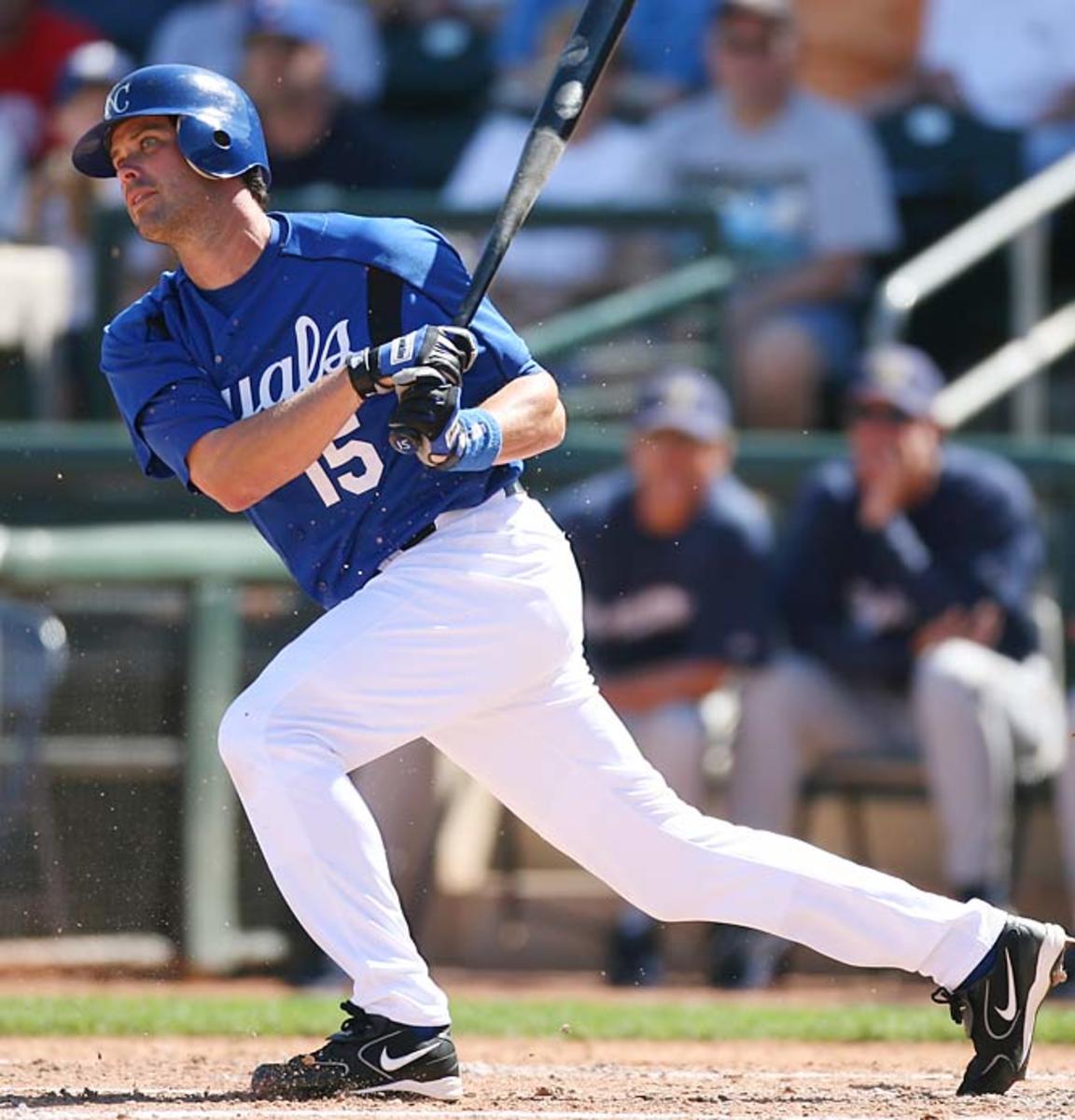
Pronunciation: grud-zuh-LAN-nick<br><br>Used in a sentence: <br><br>Royals second baseman Mark Grudzielanek is a lifetime .288 hitter. <br><br>Click the link on the last frame to let us know which name or names you would add to the list.
Guillaume Latendresse
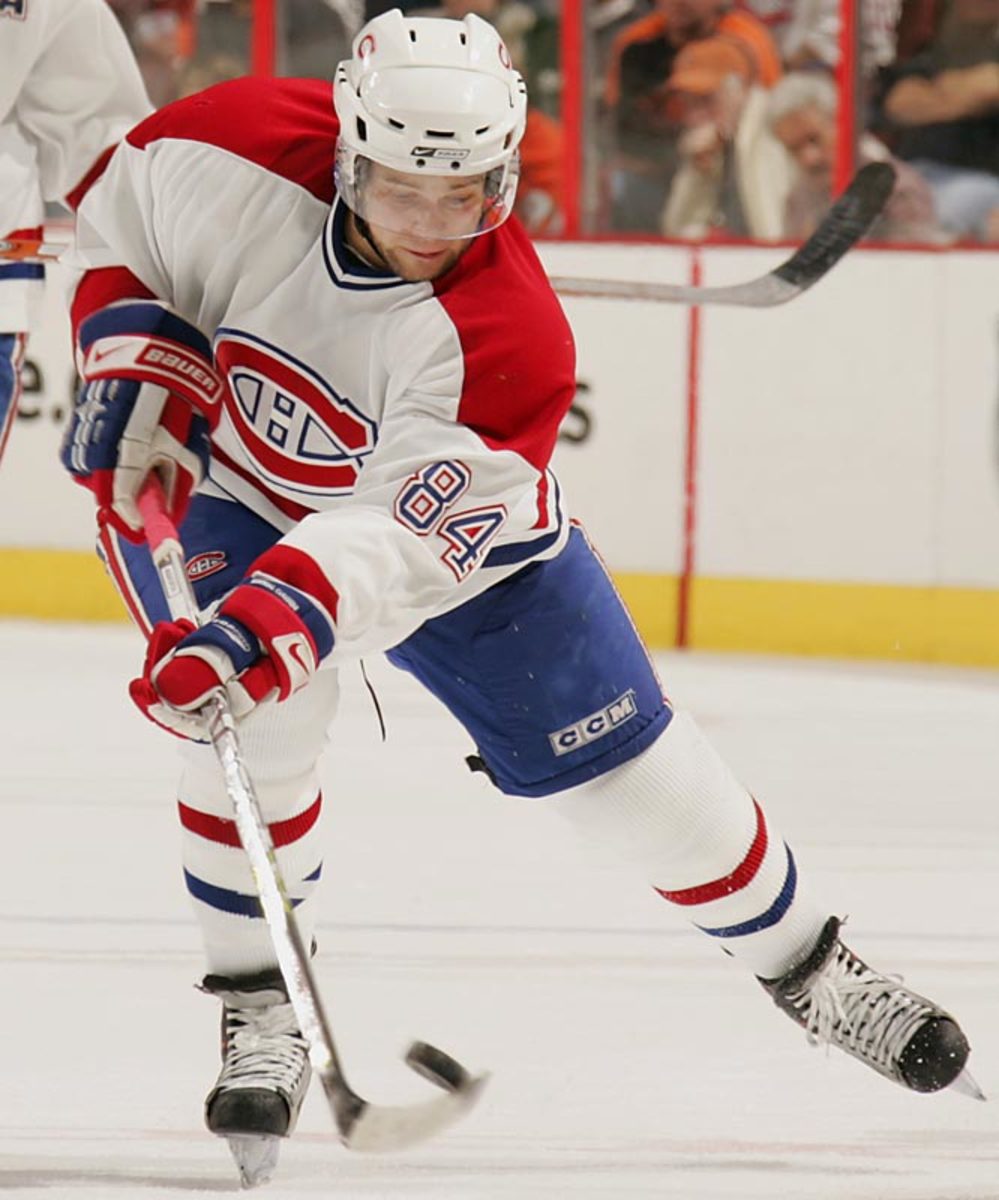
Pronunciation: Guy - Yo - hm La - Ten - Dress<br><br>Used in a sentence: Latendresse had 16 goals and 13 assists for the Canadians this season.<br><br>Click the link on the last frame to let us know which name or names you would add to the list.
T.J. Houshmandzadeh
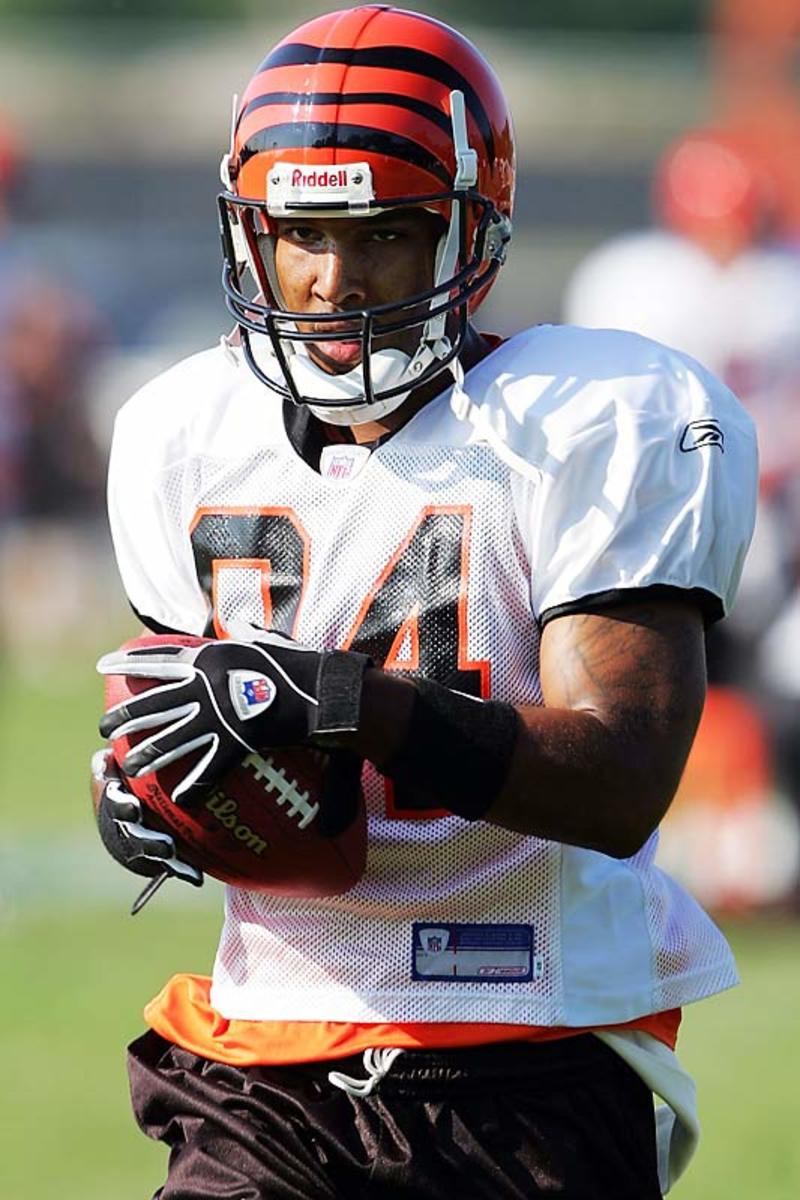
Pronunciation: hoosh-mand-zaa-deh<br><br>Used in a sentence: The Bengals receiver is named after his father, a native Iranian.<br><br>Click the link on the last frame to let us know which name or names you would add to the list.
Jarrod Saltalamacchia
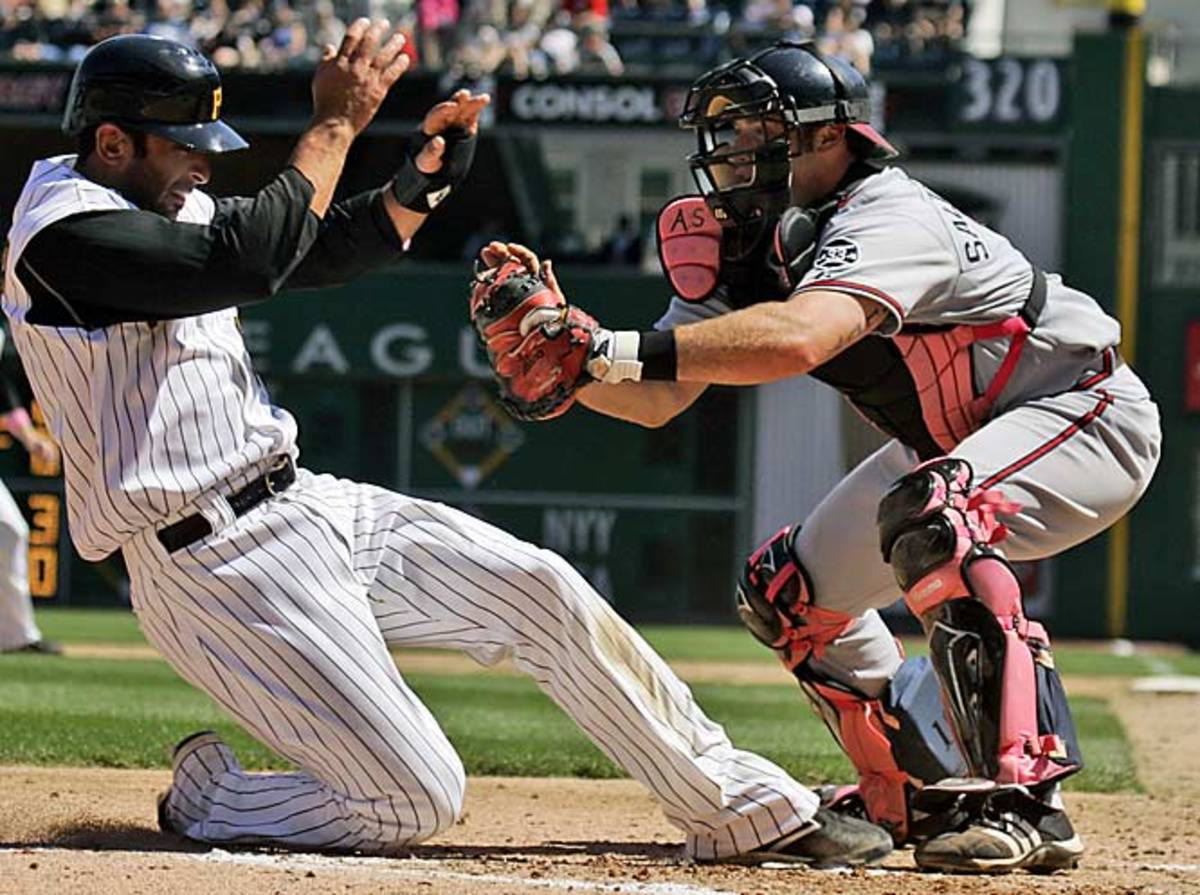
Pronunciation: Sal-ta-la-macch-i-a<br><br>Used in a sentence: Nicknamed "Salty," the sweet-swinging Saltalamacchia gives the Braves a loaded backstop tandem with Brian McCann. <br><br>Click the link on the last frame to let us know which name or names you would add to the list.
Mike Krzyzewski

Pronunciation: Shuh-SHEV-ski<br><br>Used in a sentence: Duke coach Mike Krzyzewski is beloved by ESPN announcer Dick Vitale.
Doug Mientkiewicz
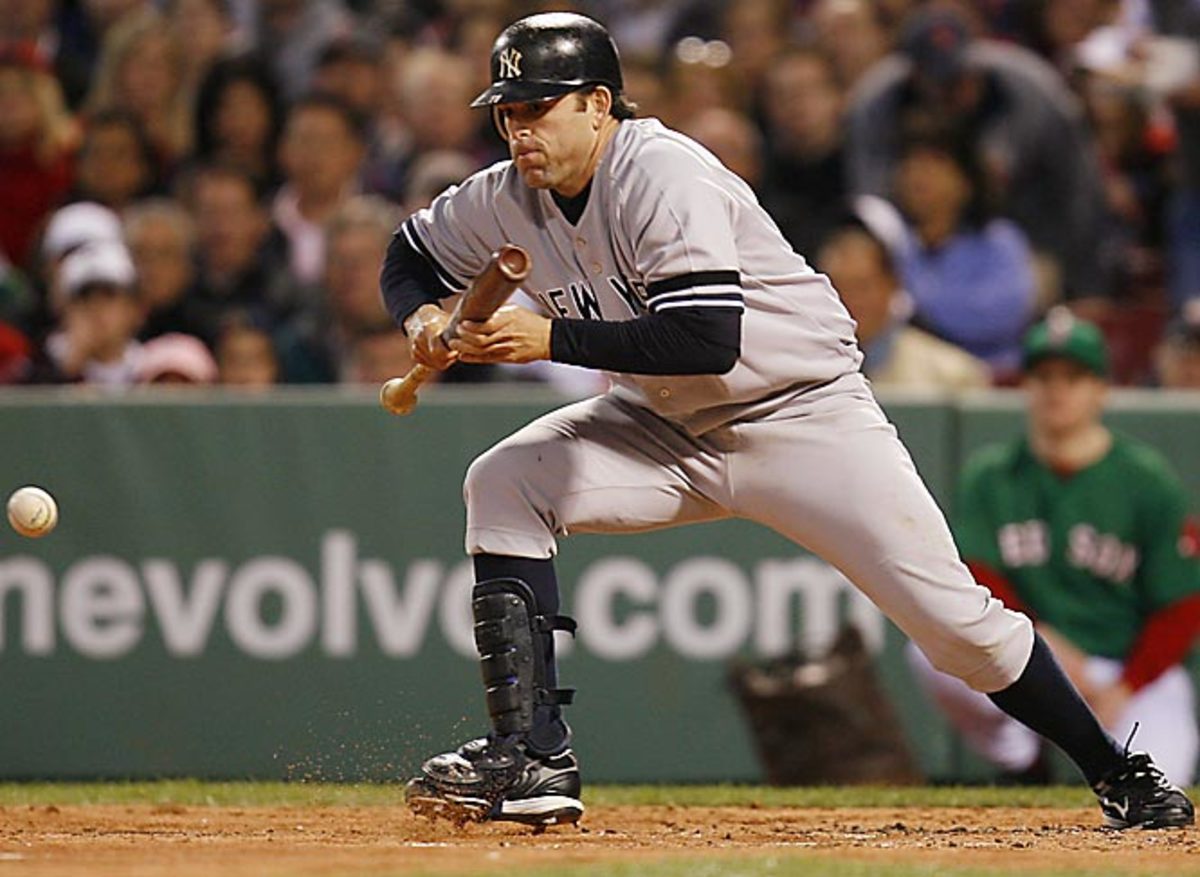
Pronunciation: mint-KAY-vich<br><br>Used in a sentence: The light-hitting Mientkiewicz will earn $1.5 million from the Yankees this season.
Nikolai Khabibulin
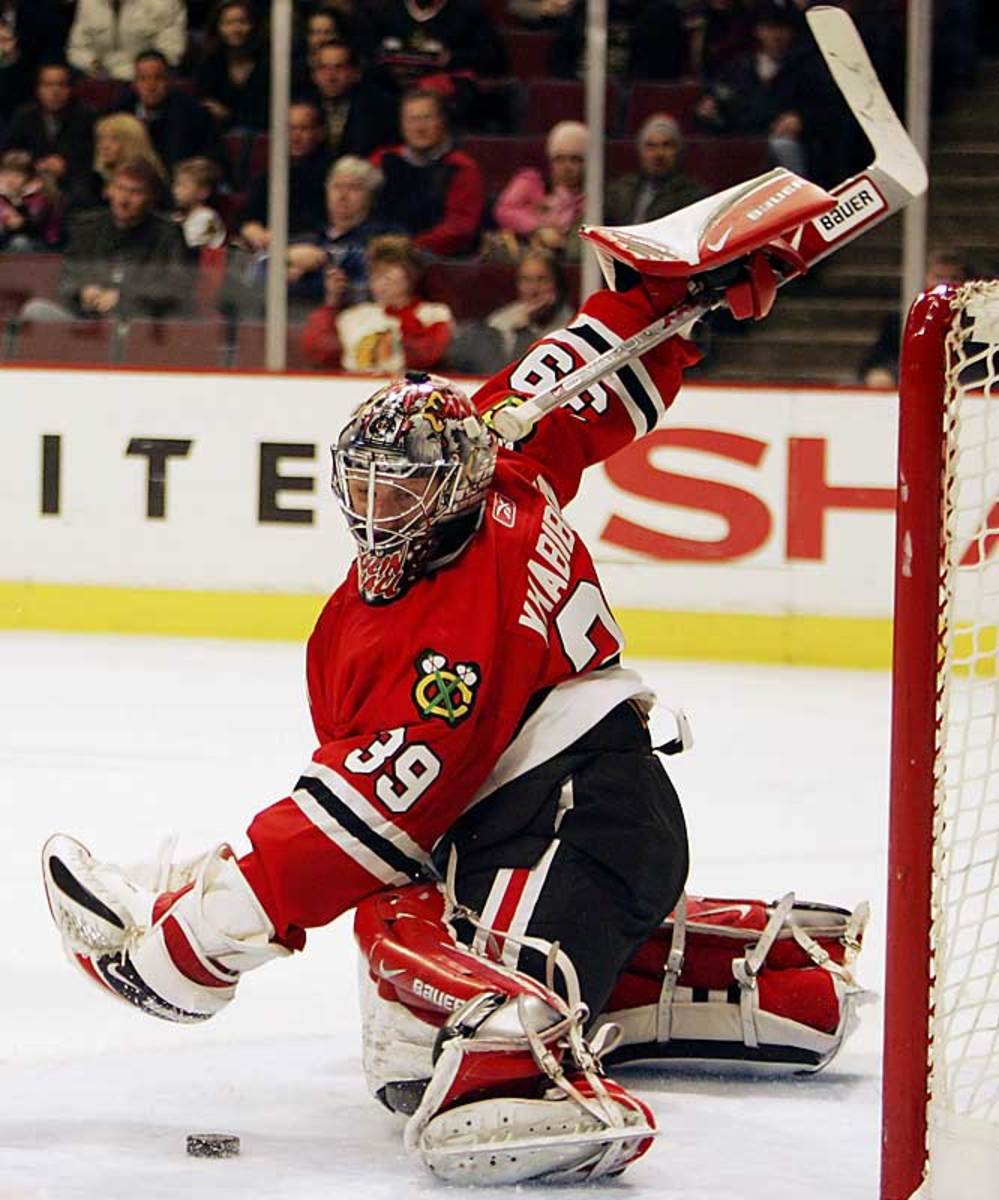
Pronounciation: hah-bee-BOO-lihn<br><br>Used in a sentence: Khabibulin, one of the NHL's top goaltenders, is nicknamed "the Bulin Wall."
Okeme Oziwo
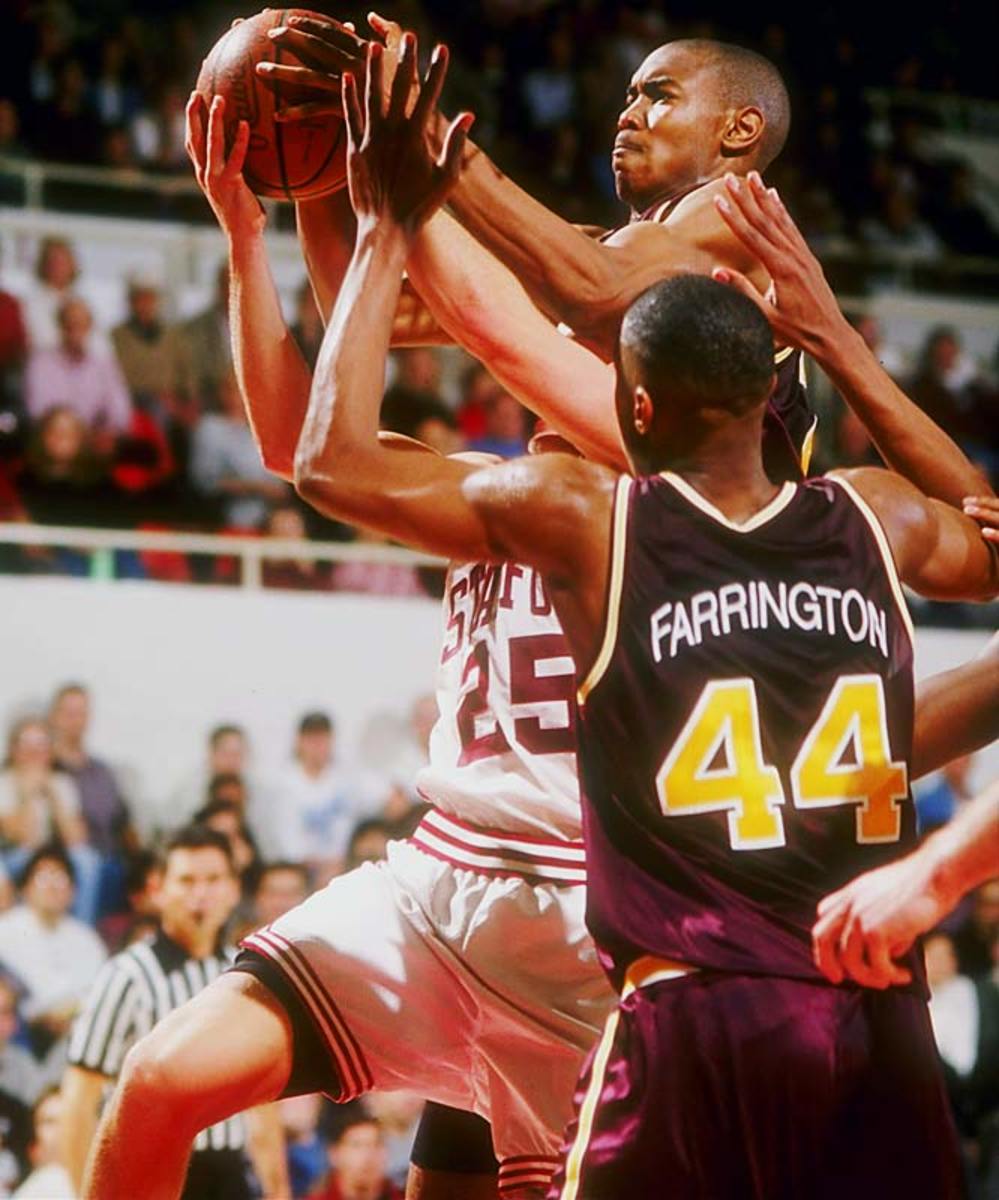
Pronunciation: oz-iwo<br><br>Used in a sentence: Oziwo played for both Arizona State and the Harlem Globetrotters before pursuing doctoral studies in social work.
Jeff Samardzija
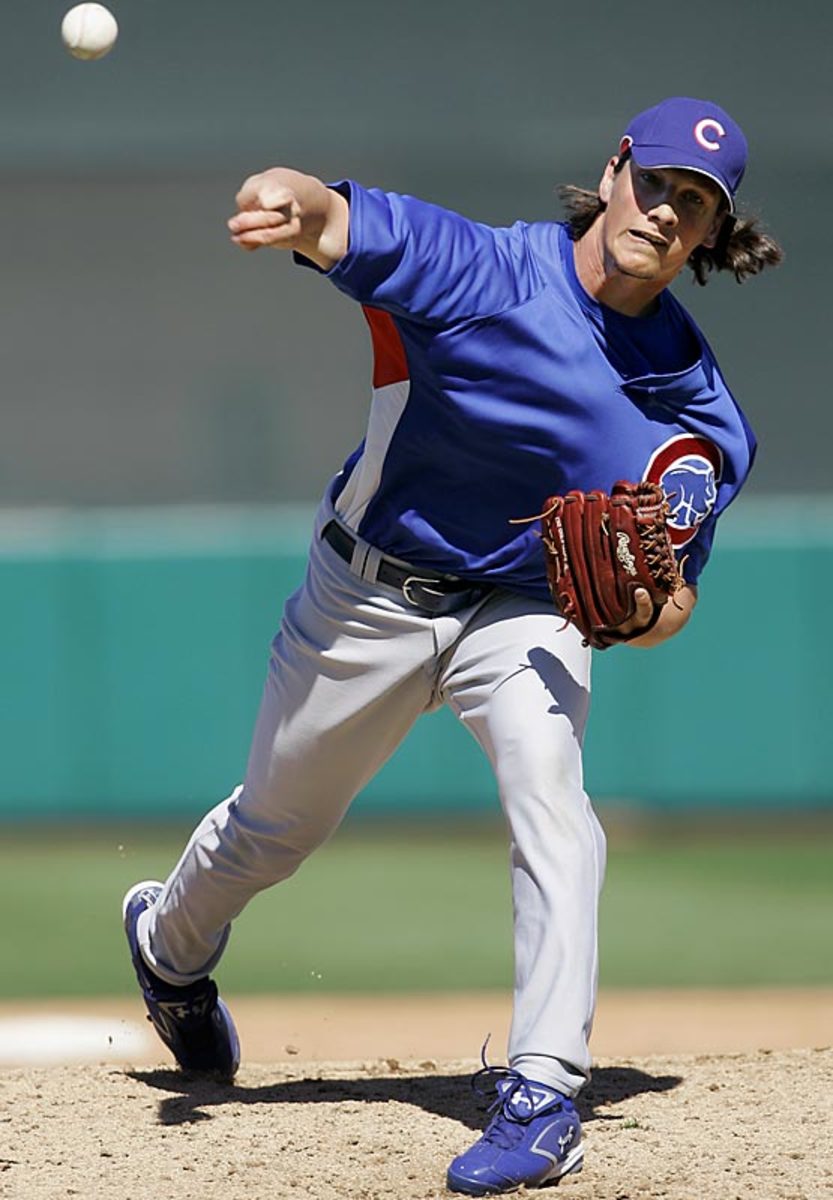
Pronunciation: sa-MAR-zhuh. <br><br>Used in a sentence: Samardzija could have played in the NFL, but instead signed with the Cubs organization.
Wally Szczerbiak
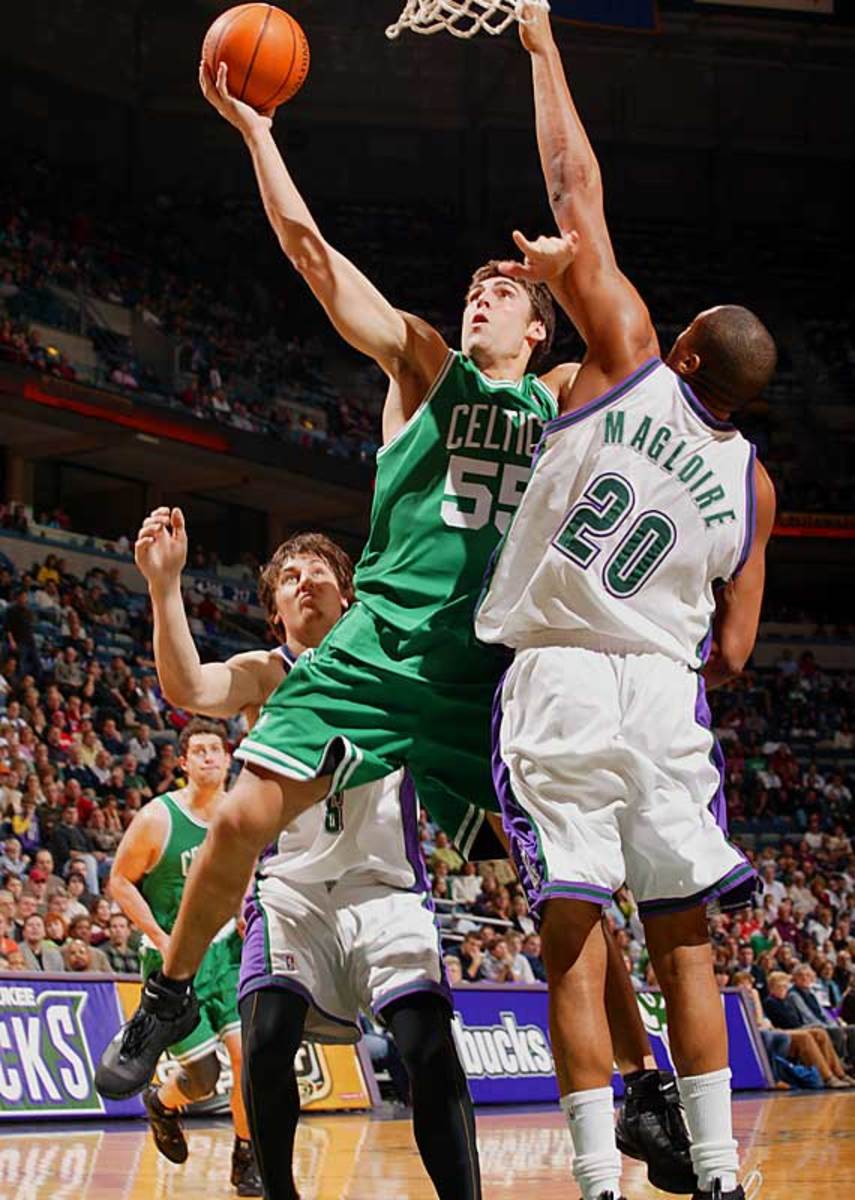
Pronunciation: SIR-bee-ack<br><br>Used in a sentence: Szczerbiak's nickname is Wally Ball.
Dwyane Wade
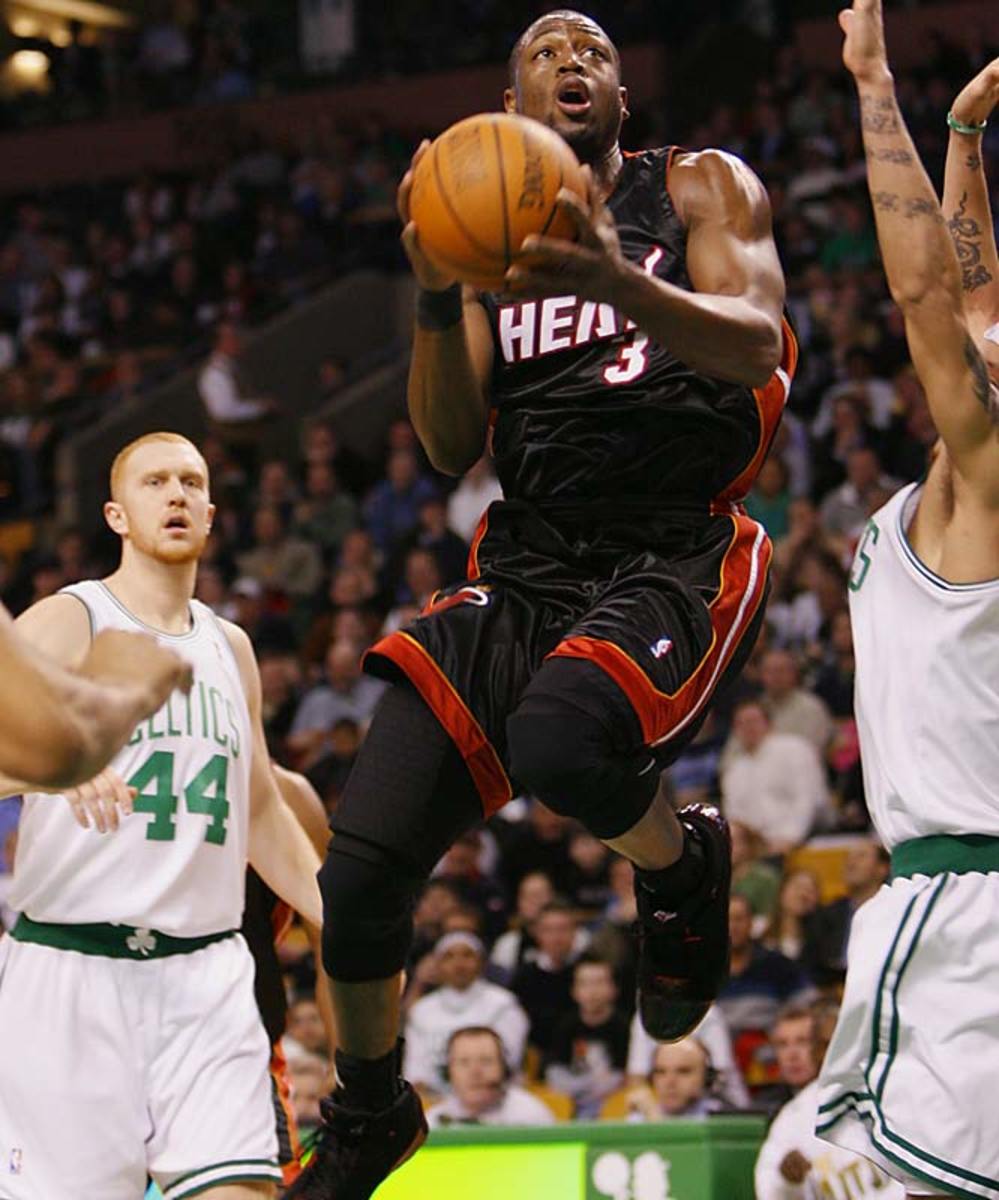
Pronunciation: Dwayne.<br><br>Used in a sentence: Dwyane was Sports Illustrated's Sportsman of the Year in 2006.
Nikoloz Tskitishvili
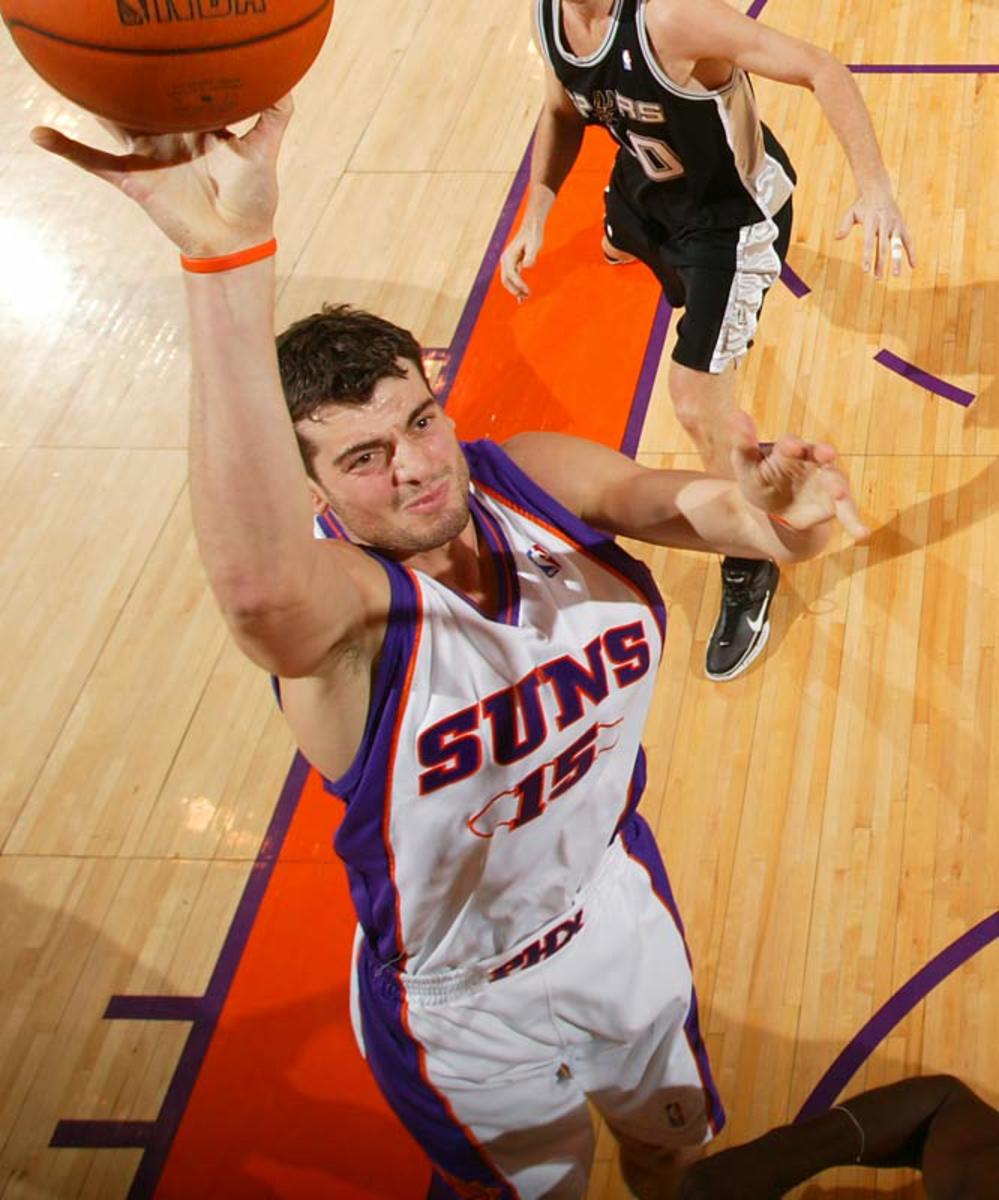
Pronunciation: SKEE-tish-VEE-lee. <br><br>Used in a sentence: Tskitishvili was drafted fifth overall by the Nuggets in 2002 and is no longer in the NBA.
